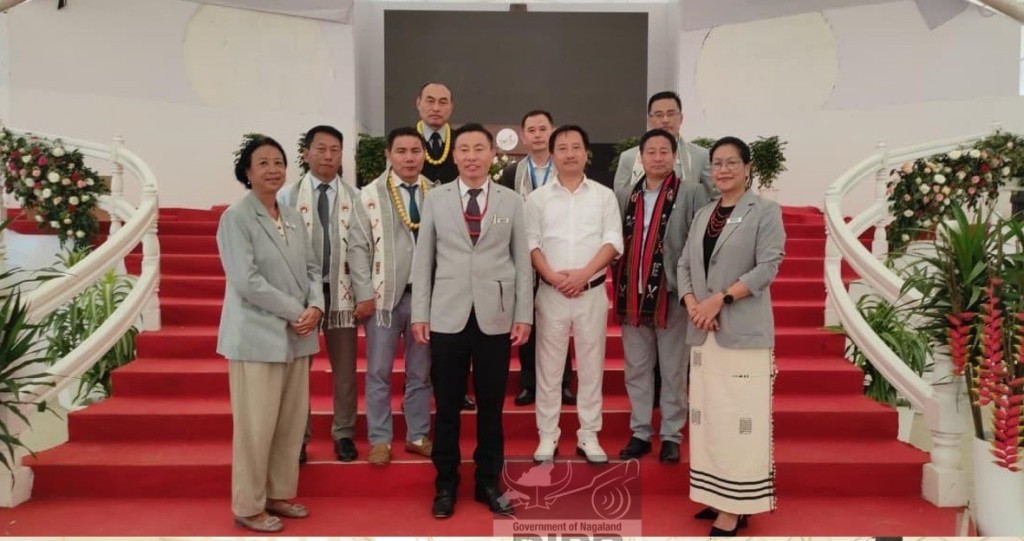Angami Gazetted Officers’ Krotho holds ‘Nounyü Rüchü’ at NBCC Convention Centre, Kohima.
Share

DIMAPUR — The Angami Gazetted Officers’ Krotho (AGOK) ‘Nounyü Rüchü’ on the theme ‘The ardent need to change the mindset and perceptive of educated unemployed youth towards self- reliance’ was held at NBCC Convention Centre, Kohima, on Friday.
President of AGOK, Neilasa Sopfü, in his address, spoke on the existential threat caused by the illegal migrants all over the state, particularly in the state capital, Kohima and the commercial district Dimapur, a DIPR report stated.
The president noted that the unemployment issue is significantly impacted, either directly or indirectly, by illegal Bangladeshi immigrants (IBIs), as they hire individuals across all levels, from menial workers to top entrepreneurs.
Also read: Nagaland University Kohima Campus conducts Nasha Mukt Bharat Abhiyan programme
He highlighted the facts and data of the population of illegal immigrants since 1991 till 2021 with an accelerated growth rate of 181.67%. Accordingly, this trend suggests that Nagas may become a minority by 2051.
He also pointed out that another factor contributing to economic drain is the business activities and joint ventures of IBIs, and further highlighted the impact of intermarriage between IBIs and Nagas, as well as the adoption of migrants.
President of NAGOK, Vipulhou Lhoungu, in his speech, encouraged the gathering, highlighting about his struggles as a young engineer. Lhoungu expressed all gratitude to Almighty God for the unwavering blessings showered on him.
He encouraged the educated unemployed to take up training in various sectors or in vocational trainings like painters, electricians, plumbers etc.
Rokovisa Chase, President of WAGOK, shed light on the country's economic status, highlighting the disparities between private and government employees, the challenges of unemployment, and the looming threat posed by IBIs.
Chase encouraged everyone to shift their mindset towards exploring opportunities in the private sector and embracing self-reliance, given that government services have reached a plateau.
Vikhozo Vitsu, Legal Advisor of AGOK, provided detailed insights into Nagaland's business community, revealing that out of 23,777 shops in the state, 17,055 are operated by non-locals.
He cited the example of Mizoram, where the Young Mizo Association has prohibited outsiders from owning or running businesses within their jurisdiction.
Vitsu emphasised the pressing issues of unemployment, economic control, threats to local identity, dominance of supply chains by outsiders, and unregulated trade in the business sector.
Tepunol Yore, President of SAGOK, offered insights into tackling unemployment by exploring opportunities in agriculture and allied sectors. He elaborated on the benefits of cultivating commercial plantation crops, horticulture crops, aromatic crops, and spice crops, highlighting their potential for generating employment and income.
Kekhrielhoutuo Nakhro, President of CGOK, shared his perspective on the state's education system, highlighting the benefits of the National Education Policy (NEP) 2020. He noted that the policy focuses on skill development and vocational training, which can equip youth for the future.
With the working-age population expected to peak by 2030, Nakhro urged young people to acquire skills in various fields, promoting dignity of labour and preparing them for the workforce.